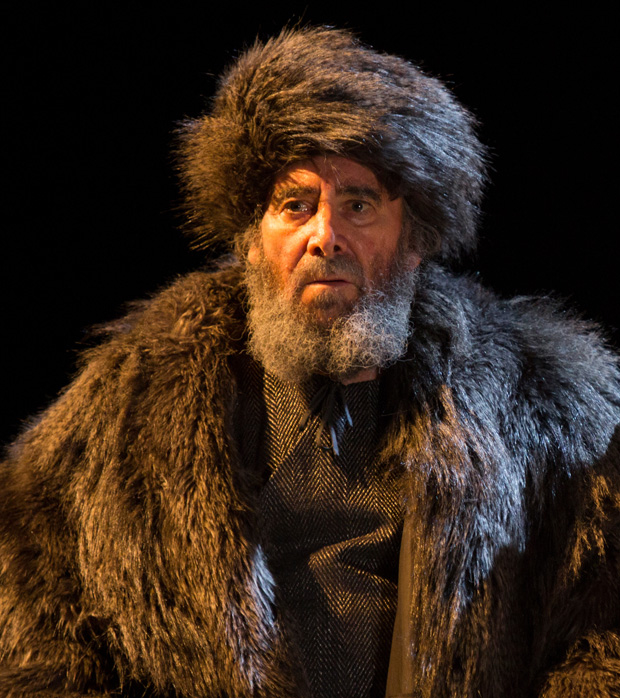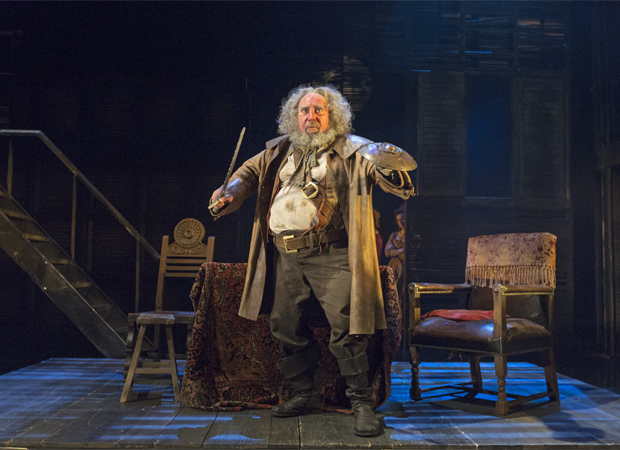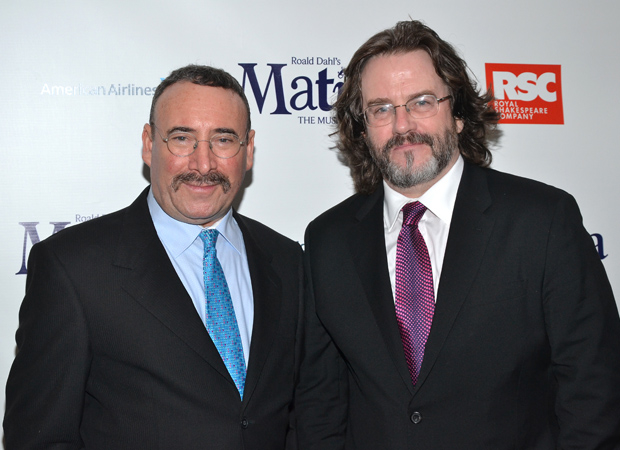Antony Sher Conquers His Final Shakespearean Role With King Lear
"There's nowhere else to go," Antony Sher says with a hint of sadness in his voice.
Over the course of his nearly 50-year career, this South African native, who has become one of Britain's most esteemed classical actors, has tackled most of the major male roles that Shakespeare wrote, more often than not at his longtime artistic home, the Royal Shakespeare Company. Sher's still-legendary Richard III in 1984, on crutches that made him look like a spider, earned him an Olivier. He has played Shylock, Titus, Macbeth, Prospero, and Falstaff. Now, Sher has reached his final Shakespearean part, the titanic title character of King Lear.
Sher first played Lear in 2016, in a production directed by his longtime partner in life and art, RSC artistic director Gregory Doran. Now, timed alongside the release of his latest journal-memoir, Year of the Mad King: The Lear Diaries, Doran's staging is coming to Brooklyn Academy of Music April 7-29 before a victory lap at the RSC's Stratford-upon-Avon home May 23-June 9.
Once you play Lear, there's really "nowhere else to go," Sher says. Admittedly, he's a little melancholy. But he's mostly proud to have traveled the tremendous journey of the Shakespeare canon, and thoroughly grateful to the Bard for being there every step of the way.

(© Ellie Kurttz)
This interview has been condensed and edited for clarity.
The press materials for this production are calling this your "final Shakespearean role." Is that true?
For the male actor, Shakespeare really marks out a fantastic career of parts, taking him through each of his ages: Romeo and Hamlet in the beginning, Macbeth and Iago and Leontes in the middle range, and then, eventually, three great parts for the older actor: Prospero, Falstaff, and Lear. And now I've done them. There's nowhere else to go, Shakespeare-wise.
As an actor, how do you feel about that? Do you look at it as an accomplishment? Are you sad?
Both. There's a melancholy and a sense of "gosh, I've gone the journey." Looking back now, I wish I'd played Hamlet, which I didn't do out of a sense of self-oppression.
What do you mean?
I thought I wasn't what Hamlet looked like. There was an old-fashioned idea that he had to be tall and handsome and blond. But that's nonsense, of course. I missed it and it's my own fault. But otherwise, Shakespeare served me very well. I'm very grateful.

(© Richard Termine)
In rapid succession over the course of two years, you went from playing Falstaff to Willy Loman, back to Falstaff, and then to Lear. How hard was it to keep all of that straight in your head? Is returning to a role easier or harder than working on it the first time?
The human brain is an extraordinary thing. I had played Falstaff for at least a year, and then left off and did Willy Loman, at which stage I started learning Lear, and then brushed up on Falstaff, which is really two parts. So that's four huge parts. I mean, how does the brain do that? [laughs]
Generally, coming back to a part…it's a bit like cooking. The part has marinated in a way that makes it feel much more inside you than when you did it originally. There's an almighty battle about whether you can do this great part or not, and whether the decisions that you're making are right. If you've done the part, leave it alone, and come back to it, you have a sense that you can do it, because you have done it, and now it's in your blood in a different way, which is a feeling I like. It's not perfect, but it feels right inside you.
Even with your classical and Shakespearean background, is the idea of playing Lear intimidating?
The part of Lear is the Everest of acting. There is something completely epic about it. It's no accident that at the heart of the play is a huge storm scene. In that storm scene, Lear is there alone, shouting at, arguing with, a storm. In a way, that is what you're up against when you take on the part. The part requires not so much an actor as a force of nature, another "storm." You do come to it feeling inadequate. It's very intimidating.
How does your King Lear differ from the other recent Lears that we've seen here in New York and abroad?
There have been some very successful chamber-piece Lears in recent years, some of which have indeed come to BAM: the Donmar Warehouse one with Derek Jacobi; the Chichester Festival production with Frank Langella. But Greg and I said we're going to try and go for the full epic scale of this, and that's what we've done. It has meant taking on the combat of this great play as a heavyweight match. We're going to do it big, as we think it should be done.
If you were to surprise everyone and pick another Shakespearean role to play after this, which would it be?
There was a point, quite a few years ago now, where I asked the then-artistic director of the RSC, Adrian Noble, whether I could play Cleopatra. I thought it would be interesting to play her as a kind of battered old queen, in both senses of the word. He was shocked and said, "Tony, if I gave you Cleopatra, every leading actress in the country would hang me." [laughs] Honestly, I don't know. Shakespeare-wise, it's finished.

(© David Gordon)










